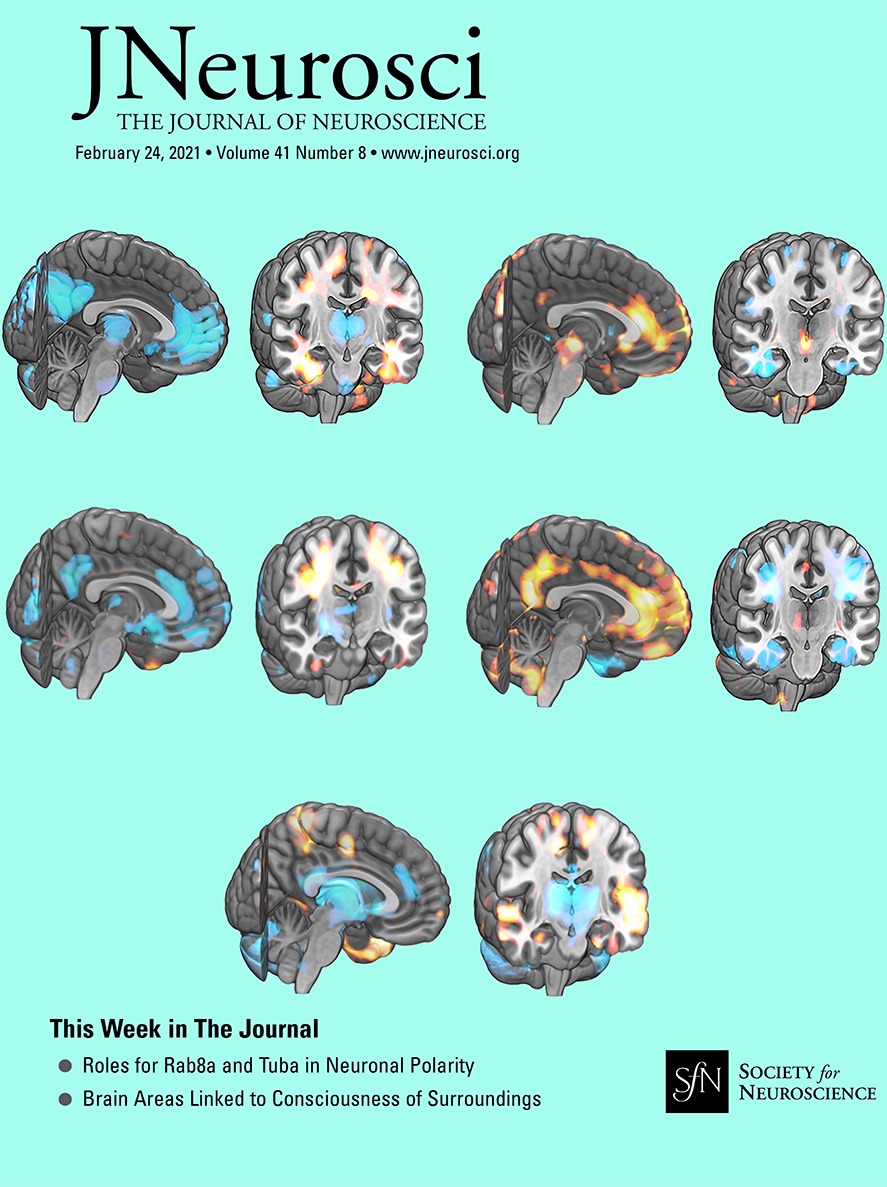97
Right Temporoparietal Junction Underlies Avoidance of Moral Transgression in Autism Spectrum Disorder
www.jneurosci.orgAutism spectrum disorder (ASD) is characterized by a core difference in theory-of-mind (ToM) ability, which extends to alterations in moral judgment and decision-making. Although the function of the right temporoparietal junction (rTPJ), a key neural marker of ToM and morality, is known to be atypical in autistic individuals, the neurocomputational mechanisms underlying its specific changes in moral decision-making remain unclear. Here, we addressed this question by using a novel fMRI task together with computational modeling and representational similarity analysis (RSA). ASD participants and healthy control subjects (HCs) decided in public or private whether to incur a personal cost for funding a morally good cause (Good Context) or receive a personal gain for benefiting a morally bad cause (Bad Context). Compared with HC, individuals with ASD were much more likely to reject the opportunity to earn ill gotten money by supporting a bad cause than were HCs. Computational modeling revealed that this resulted from heavily weighing benefits for themselves and the bad cause, suggesting that ASD participants apply a rule of refusing to serve a bad cause because they evaluate the negative consequences of their actions more severely. Moreover, RSA revealed a reduced rTPJ representation of the information specific to moral contexts in ASD participants. Together, these findings indicate the contribution of rTPJ in representing information concerning moral rules and provide new insights for the neurobiological basis underpinning moral behaviors illustrated by a specific difference of rTPJ in ASD participants. SIGNIFICANCE STATEMENT Previous investigations have found an altered pattern of moral behaviors in individuals with autism spectrum disorder (ASD), which is closely associated with functional changes in the right temporoparietal junction (rTPJ). However, the specific neurocomputational mechanisms at play that drive the altered function of the rTPJ in moral decision-making remain unclear. Here, we show that ASD individuals are more inflexible when following a moral rule although an immoral action can benefit themselves, and experience an increased concern about their ill-gotten gains and the moral cost. Moreover, a selectively reduced rTPJ representation of information concerning moral rules was observed in ASD participants. These findings deepen our understanding of the neurobiological roots that underlie atypical moral behaviors in ASD individuals.
Apparently not changing moral stances in private vs in public makes us unable to understand personal gain. Some real Ayn Rand shit.



It's nice to see actual scientific evidence for what I've anecdotally noticed about people on the spectrum, that they are very moral and ethical and are usually surprised about neurotypicals "moral flexibility."
Like, if you ask people "if you found a wallet with $1000 in it and a driver's license, knowing that no one will be hurt if you take $100 in this hypothetical, and no one will notice and you will not get punished by doing so - would you take some money form it?" Neurotypicals usually say yes even though they say it's wrong, people on the spectrum usually say no and are pretty surprised about it.
Also, I swear people with ASD are extremely charitable and are probably up there with the furries for most charitable donations per capita.
Tbf as an autistic there are situations I'd take the money. Namely if the drivers license said "Elon Musk" but this is still consistent withy morals of steal from the parasites
In his case I'd return all the money, just spraying it with the most cancerous neurotoxin I could find.
Gee, i'm beginning to suspect that neuroscience in the imperial core is being re-tooled by the bourgeoisie to uphold and promote behavior we used to call sociopathic, and to label people with empathy and ethics as an inflexible outgroup, unfit to operate in a free market. :doomer:
deleted by creator
i think the implication is meant to be that they're rich enough to not be hurt by losing $100, in which case the moral thing to do is probably to buy gasoline with the money and burn down their house, but maybe not.
How much money would have to be in the wallet to not miss a $100 bill? That’s not how money works
Edit: not trying to criticize you, just the study
yeah i dunno. they made up the scenario so they get to say "no harm" even when it's completely unrealistic. and we're the unreasonable ones for not stealing from some rando who could have just as easily sold their car or gotten scammed by a payday lender.
deleted by creator
:this:
could be correct tho
that's why they expect us to steal and get mad when we don't.
Do I know the person in the license? Beause if they're some local rich fuck or celebrity then that wealth distribution is fine by my moral code. But if it's just random Joey who is already struggling to pay his bills and took out 1,000 because he needed to do something directly then of course it's wrong to take any!